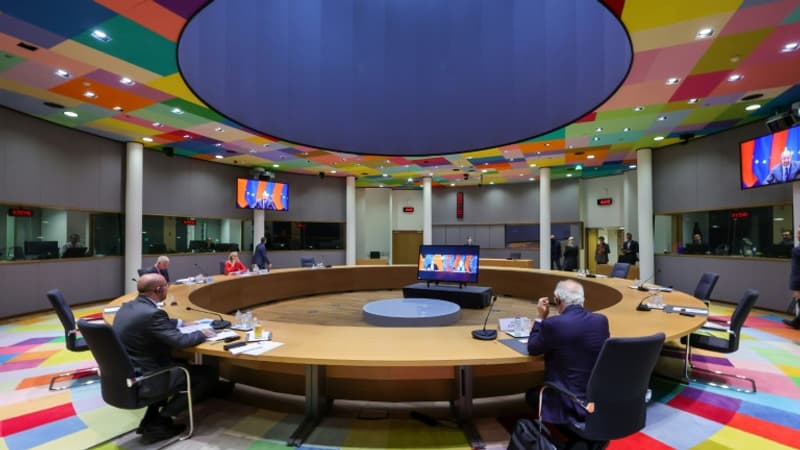End of free industrial “rights to pollute”, taxation of emissions linked to heating and cars, the social fund for the transition… The EU reached an agreement this Sunday on a broad reform of its carbon market, centerpiece of the European Climate plan.
After around 30 hours of tough talks, negotiators from the European Parliament and EU member states concluded a deal overnight to raise ambitions and widen the scope of the carbon market, according to a Parliament press release.
Meet ambitious greenhouse gas reduction targets
To cover their CO2 emissions, electricity producers and energy-intensive industries (steel, cement, etc.) in the EU must now buy “polluting allowances” on the European Emissions Allowance Market (ETS), created in 2005. and that applies to 40%. of the continent’s emissions. The total quotas created by the States decrease over time to incentivize them to emit less.
The reform, proposed in July 2021 by the European Commission, sought to strengthen it in all directions to achieve the ambitious greenhouse gas reduction targets of the EU climate plan.
Under the agreement reached, the rate of reduction of the proposed quotas will accelerate, with a reduction of 62% in 2030 compared to 2005 (compared to a previous target of 43%), which effectively means that affected manufacturers will have to reduce their emissions by 62%.
48.5% of “rights to pollute” removed by 2030
The carbon market will be progressively extended to the maritime sector, to emissions from intra-European air flights (for which the currently assigned free quotas will be abolished), and from 2028 to waste incinerators (subject to a study favored by Brussels) .
In exchange for the establishment of a “carbon tax” at the borders, the EU will phase out the free emission allowances hitherto distributed to European manufacturers so that they can face competition from outside Europe.
At least 48.5% of these free “rights to pollute” will be abolished by 2030 and disappear entirely by 2034, a timetable that was the subject of a lively contest between MEPs and states.
A “social climate fund”
Another controversial point: the Commission proposed to create a second carbon market (ETS2) for building heating and road fuels.
Frightened by the social impact of such an additional cost, MEPs asked to reserve this measure first for office buildings and heavy vehicles.
In the end, households will pay a carbon price on fuels and gas or oil heating from 2027, but this price will be capped until 2030, and if the current rise in energy prices continues, enforcement it will be postponed for one year.
The income from this new market will feed, in particular, a “Social Climate Fund”, endowed with 86,700 million euros, created to help vulnerable households and companies in the energy transition.
Source: BFM TV


